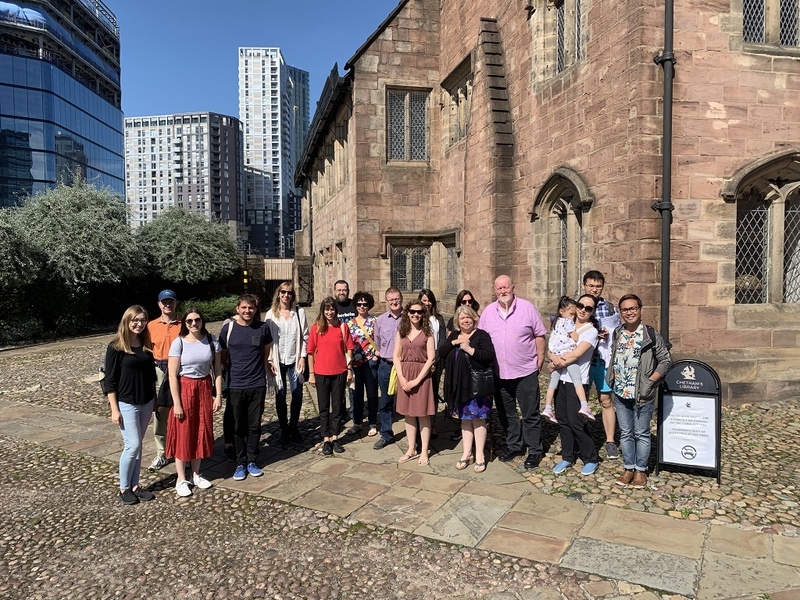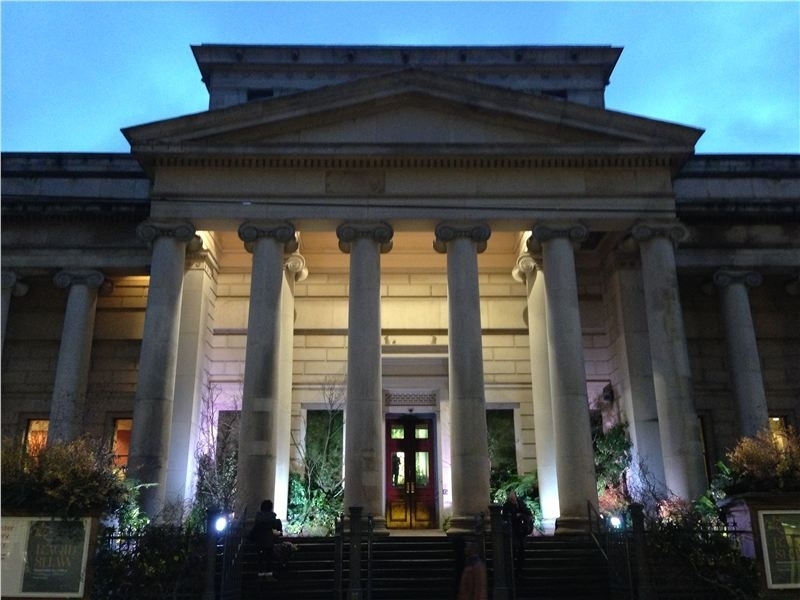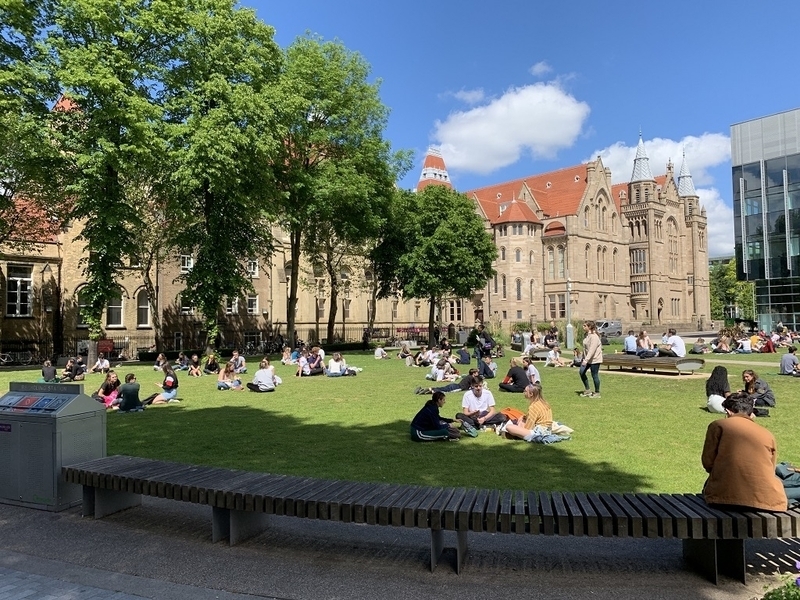Public toilets and the tourist information centre were both closed on one of the busiest weekends of the year
If we’ve said it once, we’ve said it a thousand times, such as here for example. Manchester is failing its tourism industry in one huge particular: attention to detail.
We need no more capital projects, no more museums and galleries in the fullness of time (save perhaps one - a Museum of Manchester will be necessary, in order to tell the remarkable story of our remarkable city), but this might be years away. For now, we simply need to make sure our squares and streets are clean and look lovely, while we also make sure tourists are looked after through a good tourist information provision but also through that most basic of requirements, public toilets.
The city centre needs to step up, even if that means contracts for individuals and partner companies with the council have to be altered
The failure in certain areas of Manchester tourism provision were in evidence on the Bank Holiday Monday of Pride weekend, one of the city’s busiest on the calendar. The tourist information centre (called the Visitor Information Centre in Manchester for some reason) was closed and the only remaining public toilets on Lloyd Street were closed.
First, we asked the council why the toilets were closed. We couldn’t believe the flippant answer we received. "The toilets are closed on Bank Holiday Mondays – as they are every year – to allow our staff to enjoy time away from work." It’s a funny answer in many ways but tragic, and symbolic too of how the council can be very out of touch in 2019.
Surely all the other people working across the city on one of the busiest Bank Holiday Mondays also like to enjoy time away from work. Confidential is pretty sure other people employed by the council, such as those in the nearby Manchester Art Gallery, feel the same way as well, even though they had to work.
There was even an internal contradiction within the full statement. The council said: ‘The public toilets on Lloyd Street were open on Saturday and Sunday over the bank holiday weekend – as they are every weekend. We often keep the toilets open for longer if an event in the city centre requests it – the Food and Drink festival or MIF, for example. However, the toilets require a security presence for later opening, which has a cost associated with it. The toilets are closed on Bank Holiday Mondays – as they are every year – to allow our staff to enjoy time away from work.’
Ah right, then, so there can be flexibility over opening when it suits.
We also asked why the tourist information centre had been moved into Central Library given the latter closes on bank holidays and every Sunday. The result is on two of the busiest tourist occasions there is no face-to-face official tourist information provision.
The council’s response was such provision doesn’t really matter.
They wrote: ‘The Central Library has never opened on bank holidays, which means the visitors centre that transferred to the library in July was also closed. However, the way people are interacting with visitor information is changing. Whilst a physical centre is a key part of the package, in reality it reaches a small amount of people – only 3.1% of visitor enquiries were face to face in 2018, the rest were digital. Visitors to the city over the bank holiday were supported by a range of digital information. Visit Manchester’s website saw more than 93,000 pageviews and our social media reached over 150,000 people.’
Interesting figures, but all smoke and mirrors. If people can’t access the tourist information centre with its excellent staff on key days of the year then of course the figures will go down. And if tourists and visitors live in a such a digital la-la land then the other side of my life, as a tour guide, would look bleak. Instead, the opposite true, visitors and locals are coming on more and more of the tours offered by Manchester’s tour guides, ergo, there must be more and more seeking good old fashioned human interaction.

The reliance on digital information is the great hope of every cost cutting council in the country but it simply does not bridge the desire for thousands and thousands of visitors to talk to staff in tourist information offices. Also, given the millions of visitors Manchester claims to receive, then 3.3% of that total is still very, very large. Even on the figures above, if there were 93,000 website pageviews, then unless the council tells us how else they receive tourist enquiries, it means almost 3,000 people over the weekend wanted face to face information. After all, this provision is far more efficient than digital casting about, as you get to the nub of want you want to find out far quicker.
It’s also plain weird to have moved the tourist information centre to Central Library, knowing it closes on Sundays and Bank Holiday Mondays – not that it should. Given, Manchester tourist information centre is now essentially a desk with staff, why wasn’t it put in Manchester Art Gallery which opens every day of the year aside from Good Friday, 1st January and 24th, 26th and 31st December. Or why wasn’t John Rylands Library asked to host it, which has similar extensive opening hours?

‘Manchester is a destination of renown attracting millions of visitors each year, and only surpassed by London and Edinburgh in terms of visitor numbers,’ the council tells us. ‘A key part of the city’s economy, tourists are attracted to Manchester because of the wide and varied event calendar, the city’s heritage and because it is a welcoming place for visitors’.
Well, no, sorry, in many respects it is not a welcoming place. As a tourist professional, we lack wayfinding, display boards, adequate tourist information, the pavements are often filthy and we can’t even be bothered opening a toilet on one of the busiest days of the year, while the small city centre gardens are often overgrown and unmown – as they were on the August Bank Holiday Monday.
These little things add up.

Manchester is a glorious tourist destination offering a fine range of activities and entertainments with a superb food and drink scene. Yes, there have been huge council cuts, as there have been across the country, but we need to treat all aspects of tourism seriously. The universities have learned this lesson with their landscaping, (see this article) now the city centre needs to step up, even if that means contracts for individuals and partner companies with the council have to be altered so they are relevant for the tourism of 2019.















